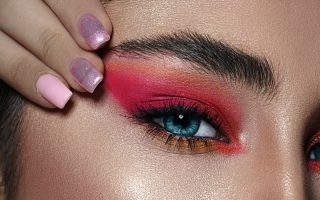Cosmetic contact lenses are a professional beauty secret that is hitting the mainstream. For years, stylists have given fashion models, actors, and actresses colored contact lenses to enhance or obscure natural eye color for striking visual effects. Rumors often abound about whether the stunning shade of a young starlet’s eyes is natural or not, but regardless of whether the It-girl of the moment was born with those baby blues it is safe to say that colored contact lenses are a powerful beauty tool.
Many of the people who opt for colored contacts have light colored eyes but are looking for a little bit of extra power. If you want to give your baby blues a little bit of extra zip, or want to give your light green eyes a bit of special luster, consider looking into contacts that have an enhancement tint. Enhancement tints are translucent, so they capture the complexity and natural variation of your eye’s appearance while adding a little bit of extra color.
Actors and actresses often find themselves cast in roles that require a total switch in eye color. For these kinds of drastic changes, only contacts with a full color tint can do the job. With an opaque color tint, you can turn your dark hazel eyes to a pale, dreamy gray. You can even swap your commonplace dark brown color for an attention getting shade of amethyst or violet. Whether you are looking to transform for a feature film, for a special event like a prom, or just to add a little something out of the ordinary to a regular night on the town, a contact with a color tint can do the job.
Color contact lenses certainly look great, but in some cases they may not be so great to look through. The center of any colored contact lens is clear, which allows your pupil free, unfiltered access to light and images. However, slight vision problems can occur if your pupil is larger than the center of the lens. Because pupils are constantly growing and shrinking in size so that you can see equally well in situations where there are varied levels of light, there is no way to size a colored contact so that you can be certain that your pupil will never be partially covered by the tint. For this reason, make sure that you have worn your contacts several times to determine whether they obscure your ability to see before you attempt any potentially dangerous activity, such as driving at night.




